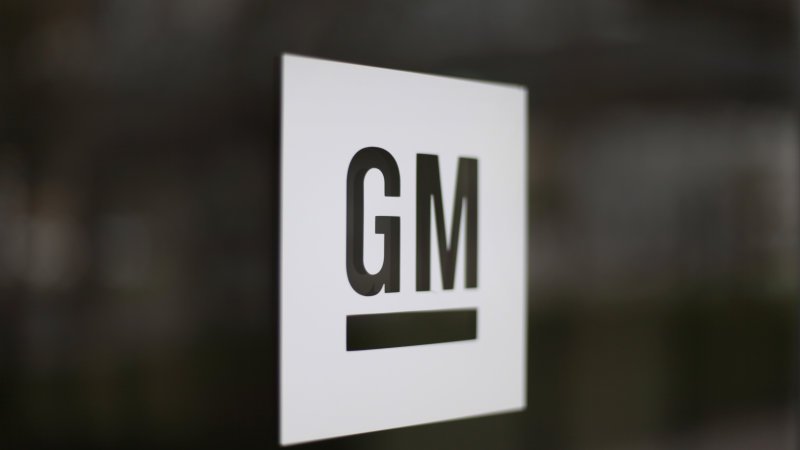Venezuelan authorities suddenly seized a General Motors plant in Venezuela on Wednesday, forcing the company to halt its operations and leaving it with few legal options in a country marked by political and economic instability.
The world's third-largest automaker assailed the takeover as an "illegal judicial seizure of its assets."
"GM (Venezuela) strongly rejects the arbitrary measures taken by the authorities and will vigorously take all legal actions, within and outside of Venezuela, to defend its rights," the automaker said in a statement.
But its legal recourse against the Venezuelan government is likely limited, said Peter Quinter, Miami-based chair of the law firm Gray Robinson's Customs and International Trade Law Group.
"They can go to the courts here in the United States and try to seek action, but that really is not going to be effective unless the Venezuelan government has some assets here" that could be seized as compensation, Quinter said. "I don't see that happening."
Automakers, including GM, Ford and Fiat Chrysler Automobiles, all have plants in the country and have struggled to make money in Venezuela in recent years as the economy has weakened and political instability has risen.
At one time, GM was producing a number of Chevrolet cars at its Valencia plant, such as the Aveo, Spark and Cruise but it hasn't made any cars there since 2015, according to Stephanie Brinley, senior analyst for IHS Automotive.
Arndt Ellinghorst, an automotive analyst for Evercore ISI, said the impact on GM's finances may be minimal since the company didn't expect to produce or sell many cars there this year.
Indeed, GM's stock price rose 31 cents, or 0.9%, to close at $34.10 on Thursday.
The seizure comes as the South American nation experiences intense public protests against the government of President Nicolas Maduro. Three people were killed late Wednesday as tens of thousands of Venezuelans took the streets to demand fresh presidential elections and the release of jailed opposition politicians.
More General Motors:
GM to add 1,100 jobs for self-driving operations
Quicken, automakers poured cash into Trump inauguration fund
The country has high crime and inflation rates and there are shortages of many basic goods and services. It is oil-rich but cash-poor. Maduro has used his Socialist government's institutions to pursue political opponents.
Secretary of State Rex Tillerson said Wednesday the U.S. is monitoring the situation closely.
"We are concerned that the government of Maduro is violating its own constitution and is not allowing the opposition to have their voices heard, nor allowing them to organize in a way that expresses the views of the Venezuelan people," Tillerson said during a news briefing.
Relations with the U.S. have been tense in recent years, although Maduro's anti-American rhetoric has softened since President Donald Trump took office.
GM and other automakers have been experiencing problems in Venezuela caused by the country's shaky economy for some time.
"I would suspect GM is not the first and they're not going to be the last because the government of Venezuela is desperate for any assets they can take," Quinter said. "It really is a vicious cycle they're in."
GM's revenue in South America has dropped from more than $13 billion in 2014 to $7.2 billion last year primarily because of falling sales in Brazil and Venezuela, according to the company's annual report. The automaker also appeared to anticipate that the government might some day seize the plant.
"Our operations in Venezuela ... continue to be negatively impacted by economic recession and political instability in the country," GM said in its annual report. "We monitor the environment in Venezuela closely to assess whether changes evolve such that we no longer maintain a controlling financial interest."
Ford opened a plant in Valencia, Venezuela, in 1962 and was making the Ford Explorer, Ford Fiesta, Ford F-250, Ford F-350 and Ford Cargo there. That plant was shut down because of declining demand, but the automaker said in a statement that it remains in possession of the plant and its administrative areas are functioning normally.
FCA's Carabobo Assembly Plant in Valencia opened in the late 1960s and the company has been building the Jeep Grand Cherokee and Dodge Forza there. A Chrysler spokeswoman said the company "is maintaining its production plans in Venezuela in support of efforts to rebuild the country's automotive sector."
Toyota restarted production at its Venezuelan factory last August after six months without producing vehicles, according to a Reuters report. On Wednesday, Toyota said it is monitoring the situation, but its plant continues to operate normally.
Venezuela's Information Ministry was not immediately available for comment. GM did not provide details about the seizure. It said that vehicles and other assets had been taken from its facilities.
The Venezuelan government has previously seized assets belonging to U.S. companies.
General Motors Venezolana, GM's local subsidiary, was established in 1948 and employs about 2,700 workers and has 79 dealers in the country. The firm said it would make "separation payments" to affected workers.
"The company is confident that justice will eventually be served, and looks forward to continue leading the Venezuelan market. In the meantime, GMV, through its dealers, will continue to provide aftermarket service and parts for its customers," GM said in its statement.
Related News

